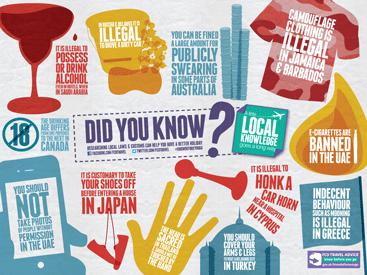Travel health update
Jane Chiodini
Jane Chiodini
MSc(Travel Med), RGN, RM, FFTM RCPS(Glasg), QN
Director of Education, Faculty of Travel Medicine, RCPS(Glasgow)
www.janechiodini.co.uk
Travel health can be complicated and advice for health professionals is ever-changing. Jane Chiodini seeks out and presents the latest advice to help you keep your practice up to date
GLOBAL POLIO ERADICATION
Did you read in the news that between 17 April and 1 May 2016, 155 countries and territories around the world will have stopped using the trivalent oral polio vaccine, which protects against three strains of wild polio virus, and replace it with the bivalent oral polio vaccine which will protect against the remaining two wild polio strains, types 1 and 3. Wild polio virus strain 2 hasn’t been seen now since 1999 so this effort will provide better protection for children against polio, in the overall programme to eradicate polio completely. More details all about the Global Polio Eradication programme can be found at http://www.polioeradication.org/ and I found the WHO video on You Tube,1 helped me to understand the topic. In the UK we use inactivated polio vaccine in a number of different combination vaccines e.g. Revaxis. We switched from using oral polio vaccine in 2004. For travel purposes we continue to follow the WHO guidance. It’s important to keep up to date on the latest advice, which can be found at http://travelhealthpro.org.uk/poliomyelitis/
MALARIA CHEMOPROPHYLAXIS FOR CHILDREN
Chemoprophylaxis for children is usually worked out based on the child’s weight rather than age according to our UK guidance – except for doxycycline, which we would only prescribe for children over 12 years of age. Information about the doses are to be found in the PHE Guidelines for Malaria in Travellers from the UK. However, NaTHNaC have now created a poster to help in your consultations.3 I have also made a visual poster designed to follow UK guidance, to help you explain to parents how they can administer the malaria chemoprophylaxis to their children. See item no.21 at www.janechiodini.co.uk/tools/
NEW VACCINE COMPANY IN THE UK
Valneva was launched in the UK at the end of March. This company now supplies the Japanese encelphalitis vaccine Ixiaro, and the cholera vaccine Dukoral. Details about the products including useful new infographics on the timing of administration intervals of both vaccines are on the company’s website at http://www.valnevauk.com/. In addition it has launched a new mosquito repellent called Moskito Guard which contains 20% picaridin, an alternative to DEET – more details at http://moskitoguard.co.uk/. Updated guidance on repellents is included in the PHE leaflet, Mosquito Bite Avoidance for Travellers leaflet.4
LOCAL LAWS AND CUSTOMS
A recent article highlighting 374 medicines that travellers are banned from taking into the United Arab Emirates at http://www.uaeinteract.com/travel/drug.asp got me searching around and I was starkly reminded that there are a considerable number of local customs and rules around the world. The Foreign and Commonwealth Office has a page devoted to such information at https://www.gov.uk/government/news/local-laws-and-customs-catching-british-nationals-out-abroad. For example, travelling with e cigarettes is banned from many destinations including Panama, Mexico, Colombia, Uruguay and Venezuala – useful to know for those making an extended trip to parts of central and south America if travelling to Brazil for the Olympic games.
TEN YEARS GONE AND LOOKING TO THE FUTURE
As the newly appointed Director of Education for the Faculty of Travel Medicine, I’ve been busy leading on the development of some forthcoming conferences. This year the FTM is 10 years old and the 2016 programme offers some interesting sessions which are less ‘main stream’ education. For those not qualified in travel medicine but interested in belonging to the FTM, Affiliate membership costs £24 a year, and offers reduced meetings fees, among other benefits. https://www.rcpsg.ac.uk/events/travelsymp
References
1. World Health Organizarion. Securing a polio-free world: stopping all polio viruses.
2. Public Health England. Guidelines for Malaria in Travellers from the UK.
3. NaTHNaC. Children's antimalarial dosage tables.
4. Public Health England. Mosquito Bite Avoidance for Travellers, 2016
Related articles
View all Articles
